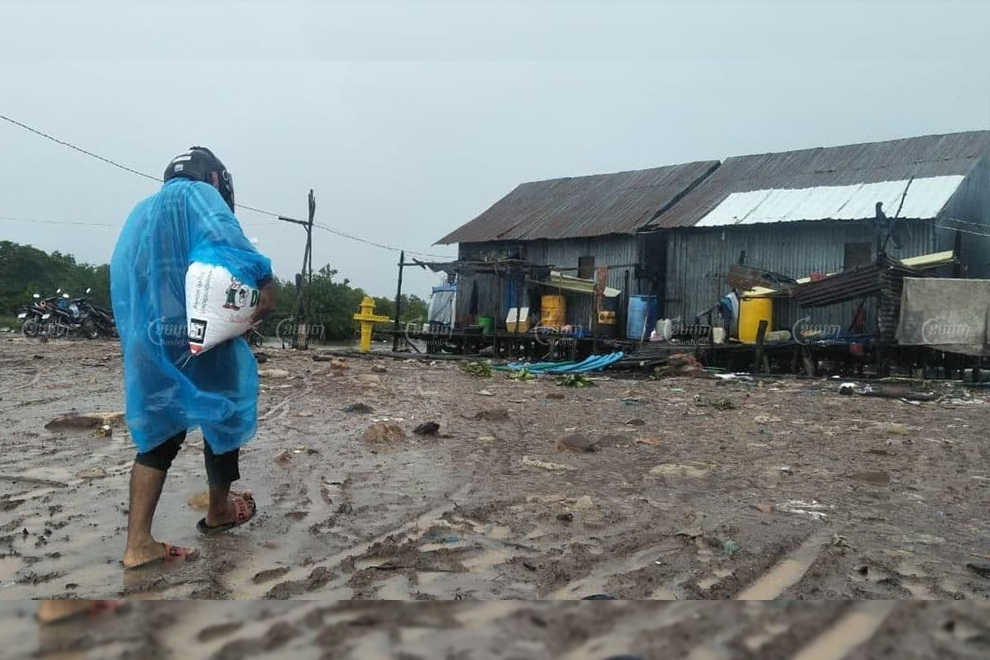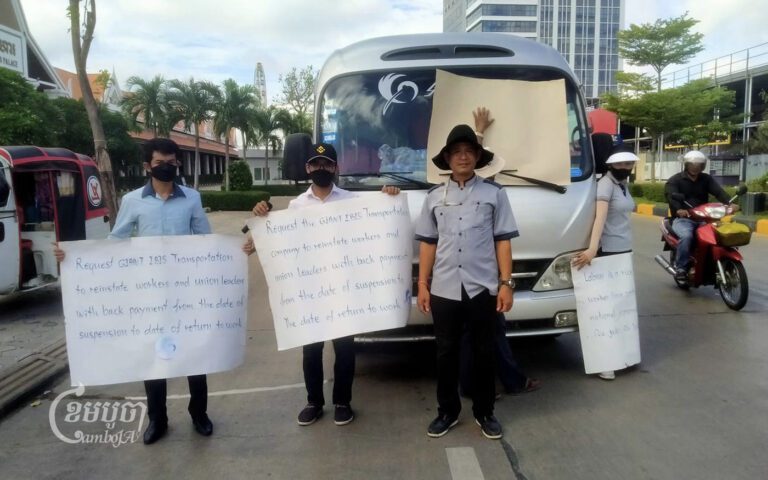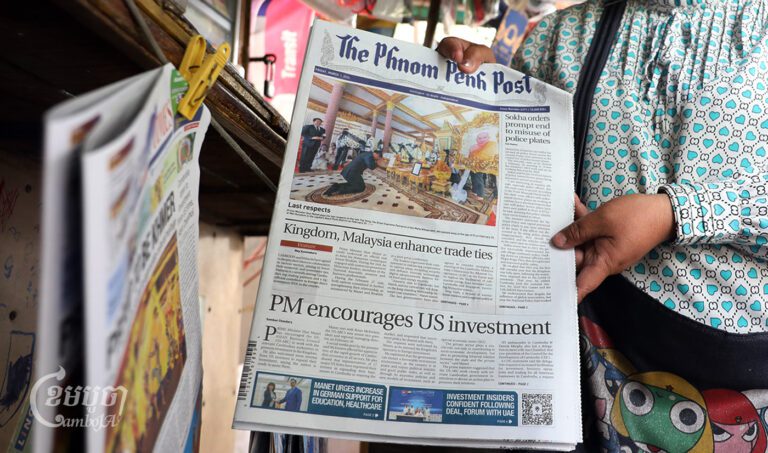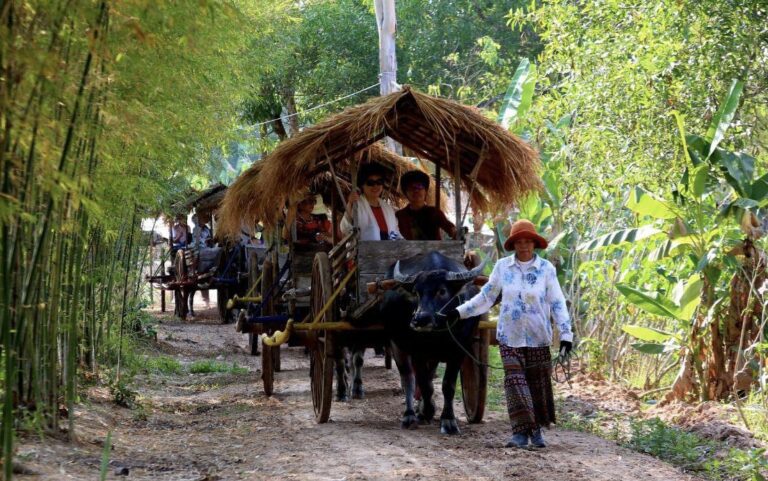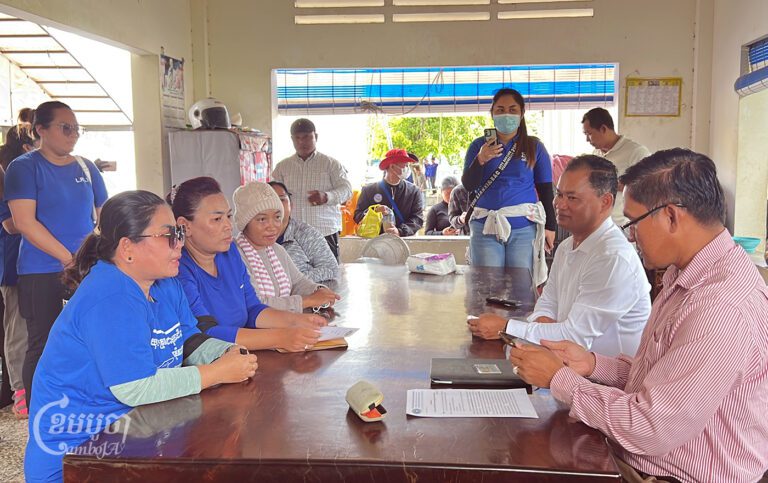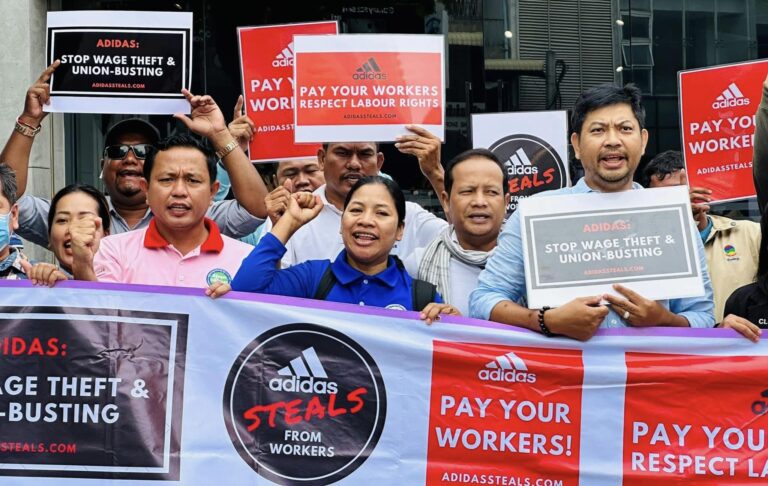Ream villagers have been nervous for the last month, after the land they are living on was part of a 600-hectare concession given to the family of influential tycoon Ly Yong Phat. Looking at past experiences, these villagers knew there was a high possibility they would be evicted from their homes in Preah Sihanouk province, and potentially forcefully.
But as good news came in that they had possibly found a resolution to the dispute, three villages in the commune are now at the center of a coronavirus scare, after government officials, who were meant to be self-isolating, made their way to the sea-side commune.
Four representatives for 59 families, who live around a mangrove lake in the province, met with a team of Phnom Penh officials, including Hun Sen’s close aide Duong Dara. The meeting was called to find a resolution to the land dispute.
The only problem was that Duong Dara, who also manages Hun Sen’s social media presence, and other government officials were supposed to be in self-isolation, after coming in close contact with a Hungarian minister, who tested positive for the novel coronavirus last week.
Now four village representatives and one company staffer have been placed in quarantine.
Kim Chanthy, 41, one of the four village representatives, said she met with the delegation of government officials, who wanted to discuss the terms of a proposed resolution for the land dispute, but was unaware of the COVID-19 alert in Phnom Penh.
“Now we don’t have a problem with the land issue but we are facing a COVID-19 [situation],” Chanthy said. “I have already been tested and I am awaiting the results.”
The village representative is currently in quarantine in nearby Sihanoukville and is concerned her family could be infected if she tests positive.
The resolution Chanthy was negotiating relates to a large tract of state land given to Seng Nhak and Ly Arphorn, who is the daughter of Ly Yong Phat, according to a sub-decree signed by Prime Minister Hun Sen in June.
The 50-year-lease was granted for mangrove and forested land in Prey Nop district and is near other large development and tourism projects in Ream and Bet Traing communes.
The fishing community, which relies on its access to the sea, has been in the dark over the land allocation, with only rumors swirling of potential compensation and relocation sites, many feared they would be evicted at some point.
There have been multiple cases of forced evictions in Cambodia, after private companies were allocated land leases or large economic land concessions for development or agriculture purposes. Rights groups have advocated for years against these concessions and asked the government and companies to fairly compensate evicted villagers, though with little success.
Additionally, Cambodian People’s Party Senator Ly Yong Phat has been at the center of controversy with his sugar concessions in Kampong Speu and Koh Kong province for forcefully evicting villagers. In July, civil society groups asked the government to revoke permission granted to Ly Yong Phat’s Koh Kong SEZ to develop Koh Kong Krao island in Koh Kong province, citing serious threats to the island’s natural resources.
Chanthy, the village representative, said villagers were willing to move to a relocation site similar to their village and for fair monetary compensation. She said they were accepting a recent offer made by the company because they were worried about continuing to live on state land.
“We have agreed to move to a relocation site because the company agreed to provide us $4,000 as compensation and a plot of land, which is 10 by 20 meters, for each family,” Chanthy said.
“We can’t oppose the state policy and we have been living on state land. We are poor families, so it is a suitable [solution] for us.”
The families have agreed to move to a location in Tuol Totoeng commune, which is also in Prey Nob district. The relocation site is also close to the sea and accessible to existing infrastructure, such as roads, water connections and electricity.
CamboJA could not reach Seng Nhak, Ly Yong Phat’s son-in-law, on Tuesday to confirm details of the potential settlement. Seng Nhak is the director of The Premier Land Company, which was given the land concession.
Lin Sarin, who is the Ream commune chief, said he was unaware of the negotiations, but that authorities had the virus situation under control. They had put four Ong Krao village residents and one company representative, who came in contact with the Phnom Penh officials, in quarantine.
Duong Dara defended his decision to go to Ream commune because he had tested negative twice and was never in direct contact with the Hungarian minister. He said the media was spreading fake news that he was COVID-19 positive, but did not comment on why he had left self-isolation early.
The government and Hun Sen asked officials to stay in self-isolation or quarantine for 14 days.
“Please do not worry about that issue and if people are concerned they can get checked at health centers near their homes,” he said on Wednesday.
He did confirm that around 50 families in the commune had accepted the government’s offer for compensation.
Kheang Phearom, spokesperson for Preah Sihanouk province, said that he knew a land concession had been granted to The Premier Land Company but was unaware of the ongoing negotiations between the company and villagers. He did support an amicable resolution to the issue.
“It is a good thing because when there are impacted villagers, we have to resolve it first to ensure our development project will work smoothly,” he said.
Phearom confirmed that Duong Dara and other government officials had visited villages in Prey Nop district to speak to villagers and defended Dara’s decision to go to the district.
“He is healthy and he has tested negative for COVID-19 two times,” he said.
Chak Sopheap, the executive director at rights group Cambodian Center for Human Rights, said it was concerning that the government has allotted 600 hectares of state land to private interests.
The human rights advocate added that if the community was happy with the agreement, then it was crucial that the government follow through on the promises made to the villagers. She did add that these negotiations and resolutions should have been done before the allocation of the land.
“It is essential that all households receive fair and just remedies for this loss of land that align with international human rights standards,” Sopheap said.


